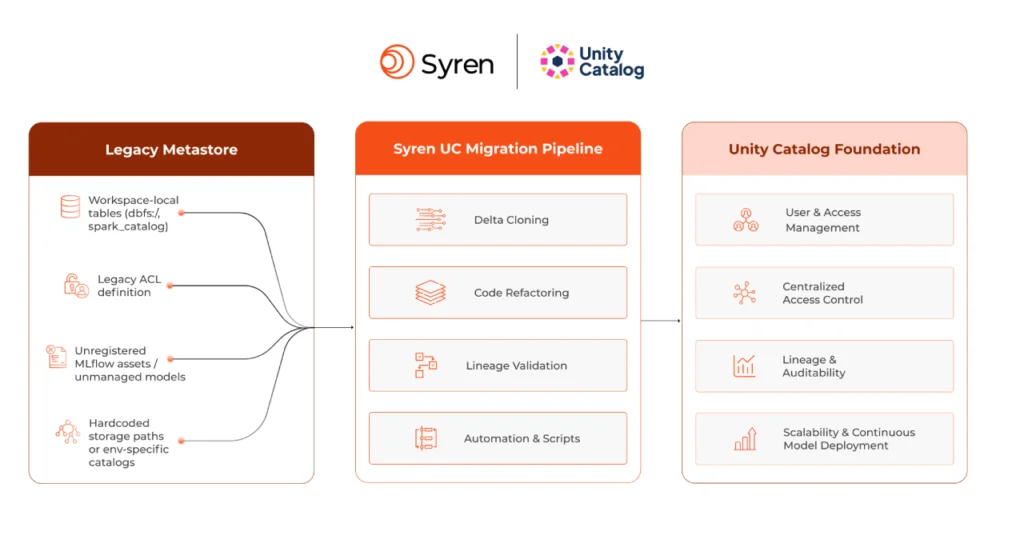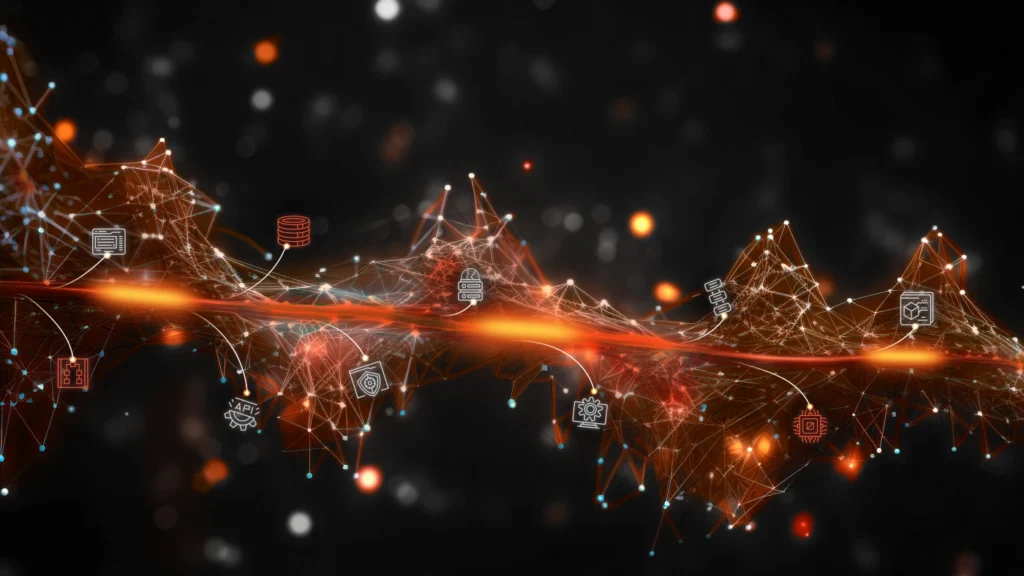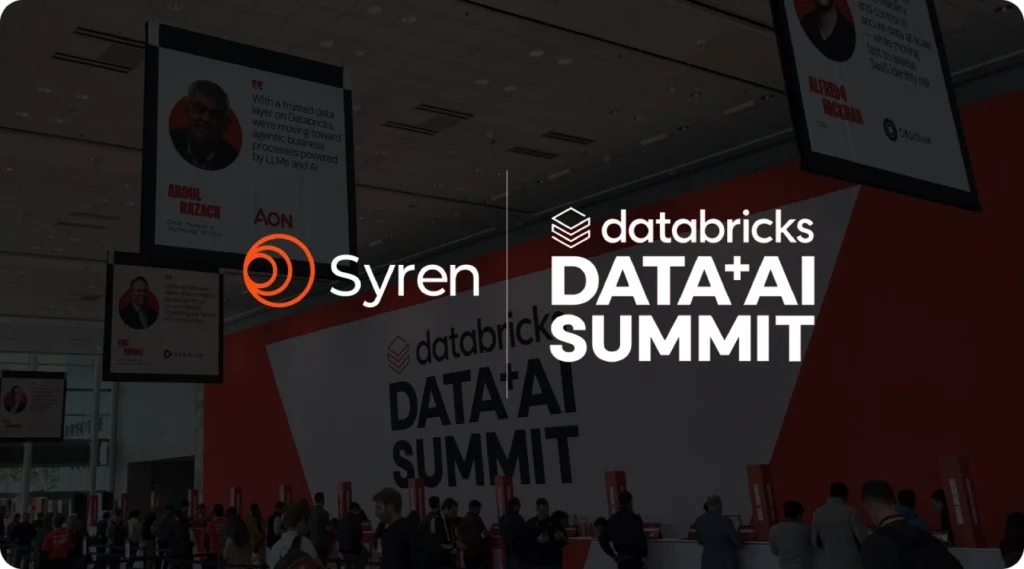
As the adoption of AI and advanced analytics accelerates, governance teams across the business world are facing mounting pressures. Over 80% of businesses have embraced AI to some extent, and 35% of them are already using it across multiple departments. With 80% of executives believing that automation can be applied to any business decision, these numbers are only set to rise!
The real challenge, however, is meeting global compliance requirements and fostering secure collaboration across teams without slowing innovation down.
At Syren, we help enterprises modernize their data operations and scale securely using Databricks and Unity Catalog, the unified governance layer for Databricks. Through our client engagements, we’ve seen firsthand how Unity Catalog unlocks the ability to govern data and AI assets with centralized control, full lineage, and open standards, without compromising on agility.
Our role? To extend that foundation with enterprise-grade governance, master data consistency, and compliance-readiness tailored to the unique needs of each organization.
Major Challenges Faced While Migrating to Unity Catalog
The most common and traditional approach is lift-and-shift, i.e., lifting existing assets and shifting them to the new environment. In reality, the migration process is a more complex orchestration of identity, lineage, policies, and ML assets. Lift and shift comes with several advantages, but it also leaves enterprises with critical gaps. Even the most experienced teams face roadblocks such as:
- Refactoring legacy workspaces to align with Unity Catalog requirements
- 2x time consumption due to technical complexity and a lack of the right framework
- Translating ACL-based permissions into RBAC
- Migrating users, groups, and service principals without disrupting workflows
- Minimizing downtime while integrating existing data pipelines
- Validating data products, models, and pipelines post-migration, and many more
Here’s a quick look at the advantages and disadvantages of lift-and-shift:

While lift-and-shift provides speed and cost savings, its disadvantages create governance, compliance, and scalability risks, making automation essential.
Why Syren’s UC Migration Accelerator is the Game-Changer
Migrating to Unity Catalog is a complex orchestration of identity, access, data lineage, and platform reconfiguration. While some approaches rely heavily on manual steps or partially scripted workflows, Syren takes a fundamentally different path with an automation-first accelerator, eliminating most error-prone and time-intensive steps.
Key Technical Examples
- Mount Point Refactoring: Identifies and replaces deprecated DBFS mount points with Unity Catalog–compliant external locations, defined using secure storage credentials and mapped to the correct ABAC roles.
- Cluster Bootstrap Automation: Unity Catalog-enabled clusters with correct security modes (e.g., single-user mode for fine-grained lineage tracking), and injecting environment parameters to route catalog usage across dev, QA, and prod.
- Metastore Initialization: Automated creation of catalogs, schemas, and associated permissions, including SCIM sync integration for identity management across Azure AD or Okta, with pre-built logic to assign data steward and engineer roles by default.
We continually expand and enhance our accelerator portfolio to push the boundaries of what can be automated. From identity and access migration to workspace bootstrapping, metadata enrichment, ML asset registration, and validation testing, our goal is simple: automate whatever is possible and keep improving what’s not yet fully automated.
Syren’s Automation Framework (Accelerator → Capability → Benefit)
| Accelerator | Capability | Benefit |
|---|---|---|
| Environment Blueprinting | Automated setup of UC workspaces, clusters, connectors, and meta store configs | Faster readiness, consistent environments |
| IAM Migration | Scripted migration of users, groups, and service principals with SCIM sync | Reduced manual errors, secure RBAC setup |
| Data Object Refactoring | Auto-translate tables, views, notebooks to catalog-based references | Minimize code rewrite effort |
| Lineage & Classification | Predefined tagging, sensitivity classifiers, and column-level lineage | Accelerated governance readiness |
| ML Asset Migration | Migration of MLflow artifacts, experiments, and registries | Responsible AI, reproducibility |
| Policy Automation | Auto-generate ABAC/RBAC policies with audit log routing | Strong compliance, audit-ready |
| Validation & QA | Automated data diffing, lineage validation, policy tests | Confidence with zero disruption |
| AI/BI Dashboards | Dashboards for migration progress & KPIs | Transparency, tracking & control |
Why Enterprises Choose Syren
Many consulting firms can implement Unity Catalog, but few can orchestrate governance from business to platform.
- Automation-first migration is not just advisory or scripting support
- Deep expertise in context and value of data structures, usage, and lineage
- Proven governance patterns tailored to Databricks environments
- Specialization in the supply chain domain requires precision in data demands precision
- Built for AI, ML workloads, as well as data lake houses
- Accelerated time-to-value with zero business disruption
Syren’s Approach
Every Unity Catalog engagement begins with a workspace assessment phase where we scan data objects to identify:
- Tables with workspace-local references (dbfs:/, spark_catalog)
- Legacy ACL definitions tied to users/groups
- Unregistered MLflow assets or unmanaged models
- Notebooks referencing hardcoded storage paths or environment-specific catalogs
From here, our automation pipeline performs:
- Delta Cloning for managed tables requiring migration to UC-managed equivalents
- Code Refactoring with parametric catalog/schema naming to support multi-environment cataloging
- Lineage validation workflows to compare source and post-migration datasets (row counts, schema integrity, and null checks)
We treat Unity Catalog as a foundation, and we harden it for auditability, scale, and continuous model deployment pipelines.

A New Era of Data Intelligence Requires Trusted Governance
As organizations scale AI and analytics initiatives, data governance can no longer be an afterthought. With Unity Catalog, Databricks offers the most mature and unified platform to secure and manage data and AI assets. With Syren, businesses get a strategic partner to move beyond lift-and-shift and operationalize governance with clarity, compliance, and collaboration to meet today’s enterprise demands.
Whether you're migrating to a single workspace or coordinating multiple environments across regions, Syren delivers automation-first, risk-aware, and value-driven migrations, architected by data engineers.


